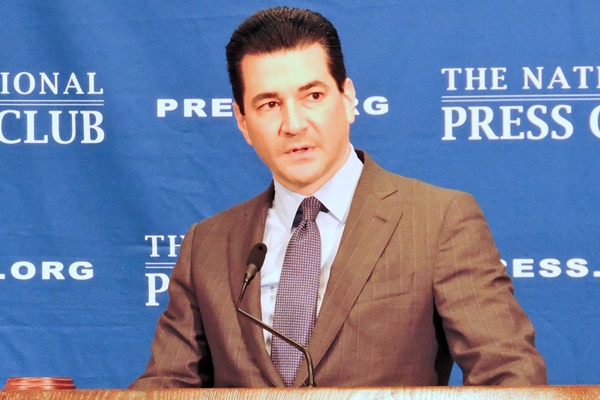30 August 2018. The U.S. Food and Drug Administration plans to pilot test new types of complex clinical trials and is considering a procedure to evaluate machine learning algorithms used in diagnostics. FDA Commissioner Scott Gottlieb described these ideas in a blog post posted yesterday on the agency’s web site.
Gottlieb noted that the prospective, placebo-controlled clinical trial remains the gold standard for evaluating new drugs and medical devices, but as new therapies become targeted for more specialized groups of patients and the conditions under which they’re tested become more complex, this process is becoming more expensive and time-consuming, as well as discouraging for patients who take part. He cites data from a study published in June 2017 that show clinical trials are taking longer to complete, and becoming more complex and expensive. One result of this growing cost and complexity, says Gottlieb, is fewer competitive drugs reaching the marketplace, allowing for those treatments first entering the market to set and maintain high prices.
To encourage more innovation in clinical trial design, FDA is asking drug and biologic developers to consider alternative methods for testing new products that build in more innovative clinical trial designs. In proposed regulations published today in the Federal Register, FDA is establishing its Complex Innovative Designs pilot program with drug and biologic developers. The program plans to allow developers to hold early meetings with FDA officials on alternative clinical trial designs, including those that allow for modifying their protocols as results come in, adjusting clinical outcome objectives, and removing requirements for placebo groups where they pose ethical dilemmas, such as in some cancer drug trials.
Gottlieb also wants FDA to develop a role in regulating artificial intelligence, particularly machine learning used for diagnostics and medical decision-making. He says FDA is already “curating standards for medical technologies” in areas where no consensus on standards is yet developed, and wants that role to include machine learning, which can adjust algorithms or mathematical models as more data are encountered and processed.
One specific use of machine learning under FDA consideration is radiogenomics, an emerging field where algorithms associate PET and MRI scans of tumors with the tumors’ genomic properties. Not only can radiogenomics improve the prognosis for individual patients, says Gottlieb, it may also provide visual biomarkers that help identify patients at higher risk. As reported earlier this week in Science & Enterprise, a French research team developed a system for computing data from CT scans and genomic analysis to predict the success for cancer immunotherapies.
To advance this field, says Gottlieb …
FDA is exploring the use of a neutral third party collect large annotated imaging data sets, for example highly annotated radiology scans used in a variety of clinical trials for specific disease indications, for purposes of understanding the performance of a novel AI algorithm for a proposed indication. Such a capability would enable a transparent benchmarking system for AI algorithm’s performance, and help providers and payers compare AI systems with the best human standard of care.
In addition, FDA is expanding use of data from the agency’s Sentinel system that collects safety reports from individual patients, but also from electronic health records and insurance claims data. Gottlieb says FDA is making available real-world evidence in its Sentinel files for a prospective clinical trial testing educational programs that encourage people with irregular heart rhythms to take medications for reducing the risk of stroke. He says it’s the first time these data are being used in a prospective clinical trial.
More from Science & Enterprise:
- FDA Issues Draft Gene Therapy Regulatory Guidance
- FDA Reviewers Found Accepting Industry Payments After Drug Approvals
- FDA Issues Guidance on Patient Experience Data Collection
- Report – Industry Pain, Addiction Drug Efforts Flagging
- FDA to Release More Accessible Clinical Trial Data
* * *


 RSS - Posts
RSS - Posts
You must be logged in to post a comment.